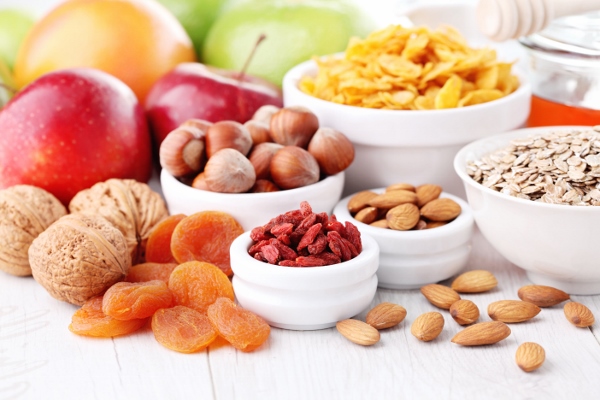The term ‘clean eating’ has grown in popularity in the weight loss world as people are beginning to take more of an active interest in the quality of food they are eating instead of just the quantity, and how where their food comes from can effect not only their waistlines, but more importantly, their health.
Clean eating is based on the principle of consuming whole, single ingredient foods to provide the body with as many nutrients as possible while eliminating any processing your food goes through from the time it is harvested to the time it hits your table. The idea is to eat your food as close to its natural form as possible to maintain its nutrient density and avoid harmful and unnecessary additives that can jeopardize your health. By doing this, we can avoid several dieting pitfalls and health effects that come with food processing. Basically, if it comes with a nutrition label, skip it, even if it’s marketed as or popularly considered a “healthy” choice. If it ever passed through a processing plant it is not considered a clean food.
While the focus is on consuming whole foods to provide your body with the best nutrition possible, there is no denying that choosing whole, nutrient dense foods over processed junk will also aid in weight loss, making it a successful dieting strategy for those interested in learning and implementing proper nutrition, making it a more successful, well-rounded approach to food and nutrition over all.
Isn’t a Calorie a Calorie?
But aren’t 200 calories from Skittles the same as 200 calories from yams? There is a circulating trend that the only thing that matters in weight management is calories in versus calories out and the body can’t tell the difference between different calorie sources (as if we are somehow smarter than our hardwired biology.)
While it is true that a calorie is a calorie, certain calorie sources can set you up to fail. Study after study confirms that ultra processed foods such as refined breads, candy, and pizza trigger the brain similarly to how drugs do. The chemicals that are added to these foods lead to addictive-like behavior from the release of dopamine, making the odds of you continuing to eat past the point of satiety much higher than when eating whole foods because of the effects of the manufacturing process.
Intuitive eating is the ability to recognize the needs of our body nutritionally, or quite simply put, eating when hungry and stopping when full. Someone who is able to eat intuitively is able to maintain a healthy body weight without dieting or tracking calories because they are in tune with their inner cues. When unnatural chemicals trigger the brain to keep eating, these signals become lost, which is why so many individuals have a difficult time reaching and maintaining their goal weight.
Eating clean whole foods, like locally sourced meat, eggs, and whole fruits and vegetables gives your body everything it needs to run optimally while eliminating any chemicals or additives that can negatively effect your own internal chemistry, your hormones, and thus, your metabolism, appetite and overall health.
But What About “Health Foods”?
Ok, we all know that choosing an apple over cookies and chips is a better choice, but surely reduced-sugar protein bars, shakes, and other diet foods are good for me, right? They are MADE to help me lose weight!
Chemicals such as artificial sweeteners are used to replace sugar to reduce overall calories, claiming to help aid weight loss, but science says otherwise. Artificial sweeteners, like those found in diet sodas, can increase cravings for more sugar, confusing your body and resulting in an overall increase in calorie consumption. Studies suggest this phenomenon can also be caused by reduced sensitivity to sweetness in the body, causing the body to crave more sweet, and gain more weight.
Also, many diet foods remove fat or sugar, and replace it with other fillers to help it maintain its flavor and texture. The human body actually needs some healthy fats and carbs, and removing these things through manufacturing can also create issues with intuitive eating. This is because the body may be telling you, “I need carbs!” but if you feed it foods that have had that macronutrient removed, your stomach may become physically full but your body is still hungry at a cellular level. The result? Here come more cravings.
Clean Eating For Weight Loss
There is a reason why our ancestors did not need to go on diets. Their only available food sources came straight from the earth in their original and natural forms, complete with fiber, vitamins, and all. When their bodies were hungry, they ate what their body needed, and at a cellular level could determine when to start and stop eating. In contemporary society, food processing has made eating at an intuitive level much more difficult, and for some, almost impossible. The harmful and unnecessary processing our food undergoes acts as a drug to our body, contributing to today’s obesity epidemic.
Clean eating may be our one way ticket out of our back and forth game with weight loss efforts, and give us the freedom we want with food. It can allow you to tap into your built-in biological signals, restore your body back to factory settings, and learn to trust yourself with food again.
Also Read:
Abs are Made in the Kitchen: Clean Eating vs. Strength Training

